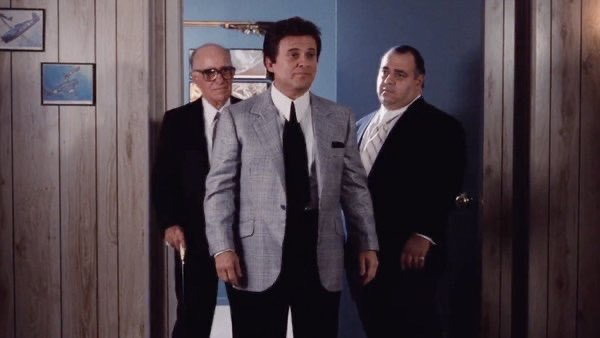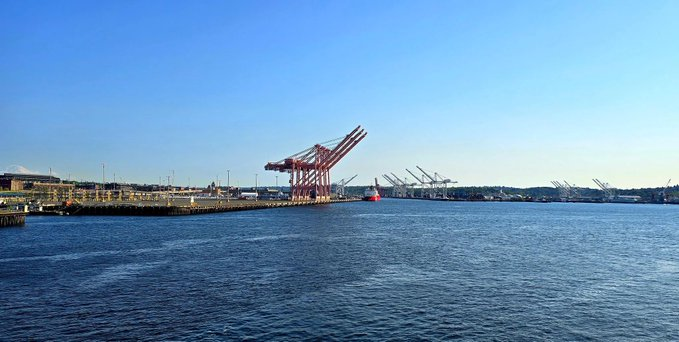-
SCAM WARNING! See how this scam works in Classifieds.
You are using an out of date browser. It may not display this or other websites correctly.
You should upgrade or use an alternative browser.
You should upgrade or use an alternative browser.
Tariffs? Buy stuff now?
- Thread starter old-fart
- Start date
florduh
Well-Known Member
I honestly find this kind of shocking. I thought for sure China would cave at least a little. To keep global trade functioning.
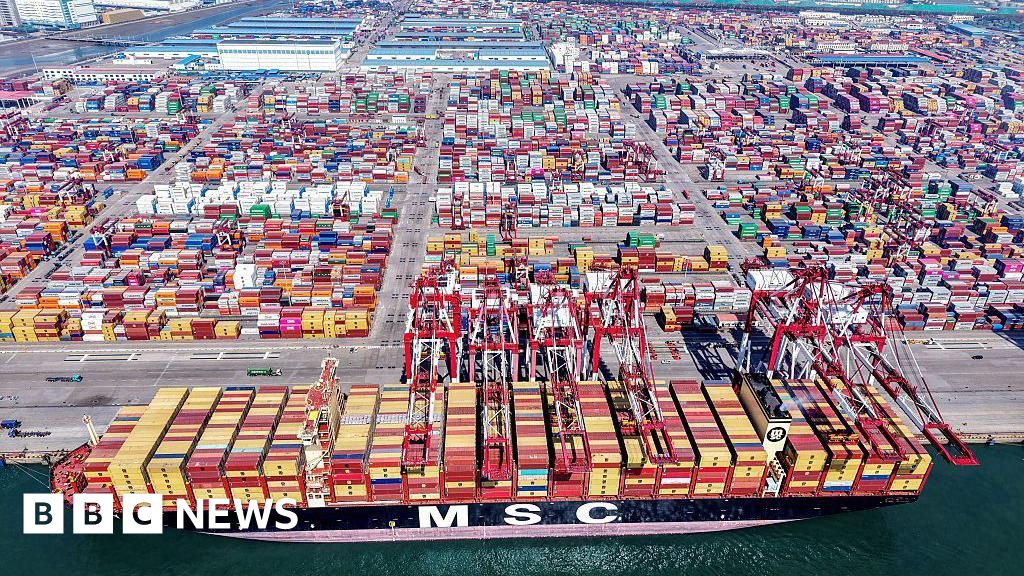
 www.bbc.com
www.bbc.com
LOL. The US is now begging to negotiate. China says, "nahhh we're good. Best of luck "
"

China tells Trump: If you want trade talks, cancel tariffs
China denies any trade talks with the US as it calls for sweeping tariffs to be cancelled.
LOL. The US is now begging to negotiate. China says, "nahhh we're good. Best of luck
Flotsam
Well-Known Member

Screenshot-2025-04-24-121038 hosted at ImgBB
Image Screenshot-2025-04-24-121038 in Flotsam2025's images album
Last edited:
old-fart
Maybe not the oldest, but possibly the fartiest!
If we are going to bring back manufacturing to the US, we are goin to have to cut wages significantly. Like by 75%. Some people may not like this.Look, I'm no Big City Business Genius. But maybe instead of crashing the global economy to bring factories back, we can instead simply improve the wages of the jobs we have now?
Hyundai factory workers in Alabama make less than McDonalds workers in Denmark
Flotsam
Well-Known Member
i never bought anything from there, but i get a weird reaction from that site. Like i get a link from here for something like Vaphit store on AliExpress. It works the first time i link but after that it just says "store not found". Its like they are hiding it from me. I suppose it is a different experience if you are shopping and logged in.I just went to order some more from AliExpress, and much of the stuff in my cart is no long able to ship to my country (USA). Bummer.
- on the other hand -
I had just bought some little glass pieces i wanted to try at this shop in Shenzen & the cc transaction didn't go through but i did get a response via Whatsapp from the seller. I was able to do the transaction via paypal and i literally had their shipment in 1 week. All tracking provided via Whats App as well. Probably the quickest i have ever gotten something from China.
So not sure what is supposed to be happening May 2 but you see Banner headlines on some Vape sites (eg TVape) about 125 % etc. Just another episode in this Shtshow
florduh
Well-Known Member
Container ships from Asia take 25 days to the West Coast and 35 days to the East Coast. We've barely seen the effects on store shelves and prices yet.
We're not bringing manufacturing back to the US. At least not with tariffs alone. It's a farce.
China has a manufacturing base because their government spent...probably trillions of dollars on subsidies and educating their populace. That's simply never happening in this country.
Listen to Tim Apple:
If we are going to bring back manufacturing to the US
We're not bringing manufacturing back to the US. At least not with tariffs alone. It's a farce.
China has a manufacturing base because their government spent...probably trillions of dollars on subsidies and educating their populace. That's simply never happening in this country.
Listen to Tim Apple:
Bakin4Life
Oink
Within 5yrs or so, robotics will supplant most of the jobs in *both* countries. China is running factories right now with no lights on -- bc there are no people in the facilities except for small overnight weekly maintenance windows.Look, I'm no Big City Business Genius. But maybe instead of crashing the global economy to bring factories back, we can instead simply improve the wages of the jobs we have now?
Hyundai factory workers in Alabama make less than McDonalds workers in Denmark
The new / next generation of 'workers' will require no wage, no time off, no break room, and no HR organization. 5-10 years from now, 'blue collar' jobs (and many of the grey / white collar) won't exist any longer.If we are going to bring back manufacturing to the US, we are goin to have to cut wages significantly. Like by 75%. Some people may not like this.
The time it would take to 're-shore' manufacturing (about 4-5 yrs) is about the same timeframe for full automation. There might be a few new buildings, but they're not going to be built with human workers in mind.
Actually, it *should* be even longer, as goods 'in the water' weren't subject to the tariffs. Of course, that won't stop the opportunistic from a quick 125% / 245% price hike (or whatever the price of goods will be, tomorrow morning).Container ships from Asia take 25 days to the West Coast and 35 days to the East Coast. We've barely seen the effects on store shelves and prices yet.
florduh
Well-Known Member
Within 5yrs or so, robotics will supplant most of the jobs in *both* countries. China is running factories right now with no lights on -- bc there are no people in the facilities except for small overnight weekly maintenance windows.
If this is true, China beats us here too. Someone still has to make the robots. Like Tim Apple said, America doesn't have enough advanced manufacturing engineers/technicians to fill a single room. China has multiple football stadiums full of them.
Exsmoker
Plant Manager
Yep, I checked my AliExpress wishlist, and things are dropping like flies. I now see this on many of the items.I just went to order some more from AliExpress, and much of the stuff in my cart is no long able to ship to my country (USA). Bummer.
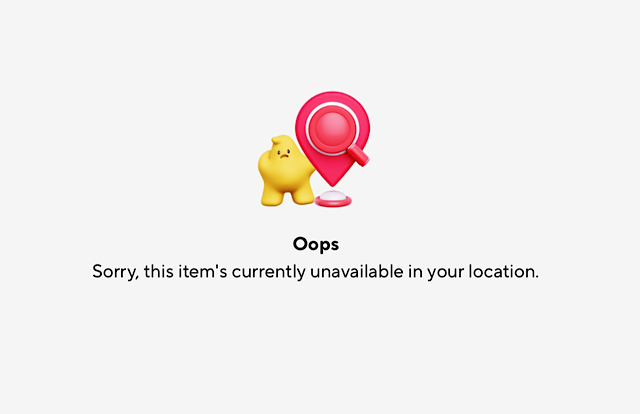
Bakin4Life
Oink
Yep. (and I never said the robots in those new US factories would be US-made)If this is true, China beats us here too. Someone still has to make the robots. Like Tim Apple said, America doesn't have enough advanced manufacturing engineers/technicians to fill a single room. China has multiple football stadiums full of them.

There's a YT vid with Friedman (who I fully acknowledge as a right-leaning libertarian) who explains this, as part of his many trips / observations there over the last few decades.)
China plans for the long-term, and their leadership doesn't need to worry about churn. Meanwhile, Tangerine Idi Amin is still stuck in the 20th century, remembering the halcyon days of US manufacturing when he grew up, in the 50's-'60s, and we were rebuilding the post WW-II era world with US-supplied materials, labor (and education). That time has come and gone, and it's not coming back.
My favorite vaporizer these days comes not from Germany or China, but from Vietnam.
chillAtGVC
Well-Known Member
And then what? Globalization has been great for the professional and managerial classes and driven wealth up. But what will happen with 10s of millions of people with no job and no prospect of a job? The opioid epidemic is probably one answer, but one I don't think we should want. Guaranteed minimum income and a life of basic leisure? Some may be OK with that, but I see that as just a recipe for eventual social unrest. As a species, we don't "do nothing" very well.The new / next generation of 'workers' will require no wage, no time off, no break room, and no HR organization. 5-10 years from now, 'blue collar' jobs (and many of the grey / white collar) won't exist any longer.
You only need that if you want to compete on price. But you can also compete on quality, repairability, longevity, trust, etc. Are people ready to pay more for better goods? I don't know.If we are going to bring back manufacturing to the US, we are goin to have to cut wages significantly. Like by 75%. Some people may not like this.
florduh
Well-Known Member
But you can also compete on quality, repairability, longevity, trust, etc.
I like this idea that everything is shitty now because foreigners are making it. And not because some fat fuck white guy in a suit says, "do this as cheaply as possible and build planned obsolescence into literally everything so I can buy a yacht"
bellona0544
Well-Known Member
If the future were more evenly distributed, we would be seeing many, many millions and billions of people moving toward a life with minimal work required to actually produce things and keep services running and people would be free to pursue hobbies, interests, education, and art while having their basic housing and food and health care needs met. We have way more than enough productive capacity to create that world. Until such time as the billionaire class no longer determines the course of human history, we will instead have mass stagnation, unrest, and very quickly we will see mass starvation and violence as monocrop globalized agriculture fails in the face of climate change.And then what? Globalization has been great for the professional and managerial classes and driven wealth up. But what will happen with 10s of millions of people with no job and no prospect of a job? The opioid epidemic is probably one answer, but one I don't think we should want. Guaranteed minimum income and a life of basic leisure? Some may be OK with that, but I see that as just a recipe for eventual social unrest. As a species, we don't "do nothing" very well.
You only need that if you want to compete on price. But you can also compete on quality, repairability, longevity, trust, etc. Are people ready to pay more for better goods? I don't know.
China isn't going to stop it--Xinping is a billionaire who doesn't care about human rights abuses or environmental abuses. They are moving toward green energy purely out of economic viability, but they still have an atrocious record when it comes to things like rare-earth metal mining and storage of hazardous waste. See here for a recent example. China is still ruled by a handful of elites with deeply centralized hierarchical power, and while they are *more* forward-thinking than the oligarchs that rule the US and Russia, they are still ultimately oligarchs that destroy this planet for profit.
We are probably going to see a bunch of smaller revolutions this century that will culminate in a more equitable, more just world, where the desire to accumulate more resources than you and a thousand of your generations could use in their lifetimes is seen as the cancer it is on both this species and this planet. Let's not forget that we are fully in the seventh mass extinction event right now and that will continue until billionaires are not allowed to exist anymore. We either see a series of revolutions that create new organizations (probably smaller than most nation-states) that work to limit the harm any individual can cause while promoting the public and ecological good, or we all start dying en masse alongside our planet until a handful of assholes get off this planet or until our population dwindles dramatically. Those are the options in front of us. Death, or change.
@chillAtGVC--you are welcome to provide anthropological evidence that contradicts my claims. Until then, your laugh means nothing

Last edited:
I'm not sure about all that tbh...If the future were more evenly distributed, we would be seeing many, many millions and billions of people moving toward a life with minimal work required to actually produce things and keep services running and people would be free to pursue hobbies, interests, education, and art while having their basic housing and food and health care needs met. We have way more than enough productive capacity to create that world.
A sustainable agricultural practice and food supply chain would require a lot of sweat from everyone...
florduh
Well-Known Member
If the future were more evenly distributed, we would be seeing many, many millions and billions of people moving toward a life with minimal work required to actually produce things and keep services running and people would be free to pursue hobbies, interests, education, and art while having their basic housing and food and health care needs met.
You would love The Culture series of utopian sci-fi novels written by the late Scottish author, Iain M Banks. It's been described as portraying "Fully Automated Luxury Communism". But imo, the civilization known as The Culture are more like Space Anarchists. The setting answers the question, "how good can life get for conscious beings in our physical universe?"
Also fun... bars in these novels don't sell drinks. They sell "vapor bowls" of drugs. Like an advanced version of this product:

bellona0544
Well-Known Member
I would challenge you to do some research into sustainable local agriculture and what would be involved in a transition to an ecoharmonious world. The combination of modern agricultural science and more traditional (often indigenous) methods of agriculture produces some wildly abundant farms and gardens. In the 1700's during the American revolution, something like one in three citizens were farmers because you needed that many people tending to food production. A modern farmer now feeds hundreds. Even local farms that use things like companion planting to avoid pesticides and fertilizer produce pounds and pounds of food. I went to my local, innercity farm yesterday and the lettuce crop is coming in nicely, the trees are all doing great, and the herbs are almost ready, and we're planning on planting most of our other fruits and veggies soon. I do about two hours of work a week at that farm during the season and will get the majority of my produce needs met there, and you don't have to volunteer to get stuff.I'm not sure about all that tbh...
A sustainable agricultural practice and food supply chain would require a lot of sweat from everyone...
The truth that the Powers That Be don't want you to know is that our capacity to produce energy and resources has improved literally hundreds of times in the past three centuries, and yet we are constantly being asked to get by with less and less. It would take a third of our current productive capacity to provide the entire population with a decent standard of living. Literally all of the excess right now is being used by a small fraction of the population to do things like fly privately all the time and have 40,000 square foot mansions that have massive heating and cooling costs even though they are only occupied part-time. That doesn't even get into how globalizing food has meant obscene amounts of food waste since the food being produced (often in areas where people are starving) gets sent halfway across the world only for another bag of wilted spinach to wind up in the trash. The entire global system we've created was based on mass exploitation of populations and on burning fossilized algae to the point that we are now spewing more pounds of CO2 into the atmosphere per year than the volcanic activity in the Triassic Jurassic extinction.
I'm familiar with the series but have never read any of them. I've heard the utopian Culture society is often claimed by different ideologues as representative of their preferred method of economic governance--like, socialists claim it is Marxism realized, and neoliberals claim it is liberalism fully realized to the point of being post-scarcity while having liberal values intact, and so on. Banks is so well-revered in sci fi from everything I've seen and I fully haven't read anything of his and that is something I intend on rectifying soon.You would love The Culture series of utopian sci-fi novels written by the late Scottish author, Iain M Banks. It's been described as portraying "Fully Automated Luxury Communism". But imo, the civilization known as The Culture are more like Space Anarchists. The setting answers the question, "how good can life get for conscious beings in our physical universe?"
Also fun... bars in these novels don't sell drinks. They sell "vapor bowls" of drugs. Like an advanced version of this product:

florduh
Well-Known Member
Banks is so well-revered in sci fi from everything I've seen
Besides discussing deeply human topics, the books are beautifully written. Iain passing was such a massive fucking loss.
I've heard the utopian Culture society is often claimed by different ideologues as representative of their preferred method of economic governance--like, socialists claim it is Marxism realized, and neoliberals claim it is liberalism fully realized to the point of being post-scarcity while having liberal values intact
There's a section in the YouTube doc I posted that discusses this a bit. The YouTuber asked Banks about it before he passed. Banks said The Culture is so advanced that no 19th or 20th century political philosophy describes them accurately. He chose to call them, "Hippies with Guns". Personally, I'd describe their system as "Fully Automated Gay Luxury Space Anarchism".
As someone who read all of the books (most more than once) IMO the only ones who are full on delulu are the Neolibs. This is what Neoliberal scifi looks like:
Now back to Earth (unfortunately)

Walmart, Target CEOs privately warned Trump tariffs could lead to empty shelves soon
Two U.S. retailers warned President Trump his sweeping tariff policy could disrupt supply chains and lead to empty shelves in the coming weeks.

Traffic at the Port of Los Angeles set to plunge amid tariffs
The Port of Los Angeles could see a 35% drop in imports in just two weeks following a surge in goods to beat the tariffs.

Plunging LA port volumes spell trouble for truckers
The country’s most reliable source of freight is slowing down.
 www.freightwaves.com
www.freightwaves.com
Truckers (along with longshoremen) will be among the first job losses of the coming recession.
Flotsam
Well-Known Member
thanks for posting those florduh. Big Surprise that the orange guy who went Bankrupt 8 times would Destroy the US economy with his moves.
still have to laugh when we remember during the election that people thought LOSER tRump would be better on the economy than Kamala???!!! She was RIGHT!
still have to laugh when we remember during the election that people thought LOSER tRump would be better on the economy than Kamala???!!! She was RIGHT!
florduh
Well-Known Member
If you needed any more evidence the stock market is completely fake, look at the Dow today. I can't stress this enough: it is too late. Even if we go to zero tariffs tomorrow, the damage is already done. Empty shelves are coming.
I'll eat some crow. I did not think these people were THIS stupid
I'll eat some crow. I did not think these people were THIS stupid

Rodney
Well-Known Member
Does he have dementia or something? or is he doing this so he can use it to make personal money for himself and his chums? like nepotism on a large scale?
I stay in the UK and we are now doing things mirror the US actions and imo this is so we get a good trade deal. Our PM gave Trump a letter from the King like he had one some prize on a gameshow
We will have protests over here when he comes as the public over here despise trump. If I was the king I would just not turn up then go to the media and tell them trump is not welcome in the UK to GTFO
I dont really like Trump myself and am sure most of you guys feel the same? just most of what he ahs done so far has not been cool or nice. Am sure there will be people who do support them as they are making money from all this shit but the majority of you guys in the US must know this guy is a bad man.
I stay in the UK and we are now doing things mirror the US actions and imo this is so we get a good trade deal. Our PM gave Trump a letter from the King like he had one some prize on a gameshow
We will have protests over here when he comes as the public over here despise trump. If I was the king I would just not turn up then go to the media and tell them trump is not welcome in the UK to GTFO

I dont really like Trump myself and am sure most of you guys feel the same? just most of what he ahs done so far has not been cool or nice. Am sure there will be people who do support them as they are making money from all this shit but the majority of you guys in the US must know this guy is a bad man.
florduh
Well-Known Member
Am sure there will be people who do support them as they are making money from all this shit but the majority of you guys in the US must know this guy is a bad man.
Around 31% of eligible voters chose him. The biggest winner was "neither" (36% of eligible voters stayed home).
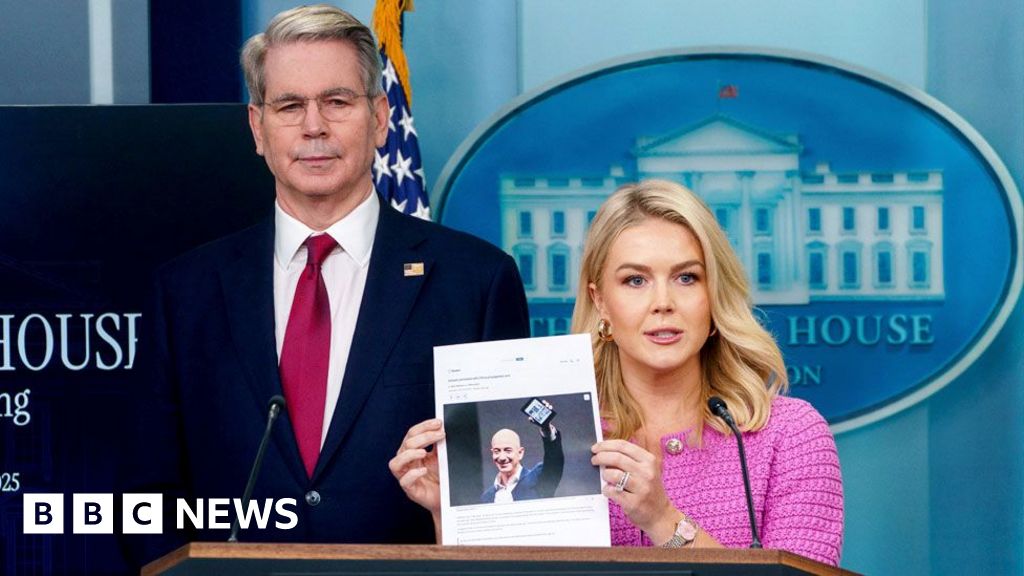
Trump calls Bezos as Amazon says no plan to show tariff price rises
Donald Trump called Amazon founder Jeff Bezos to complain about the plan, which the company said had been rejected.
Amazon is reportedly planning to include an "added cost due to tariffs" disclaimer to their product pages.
Tariffs are a sales tax


